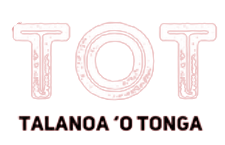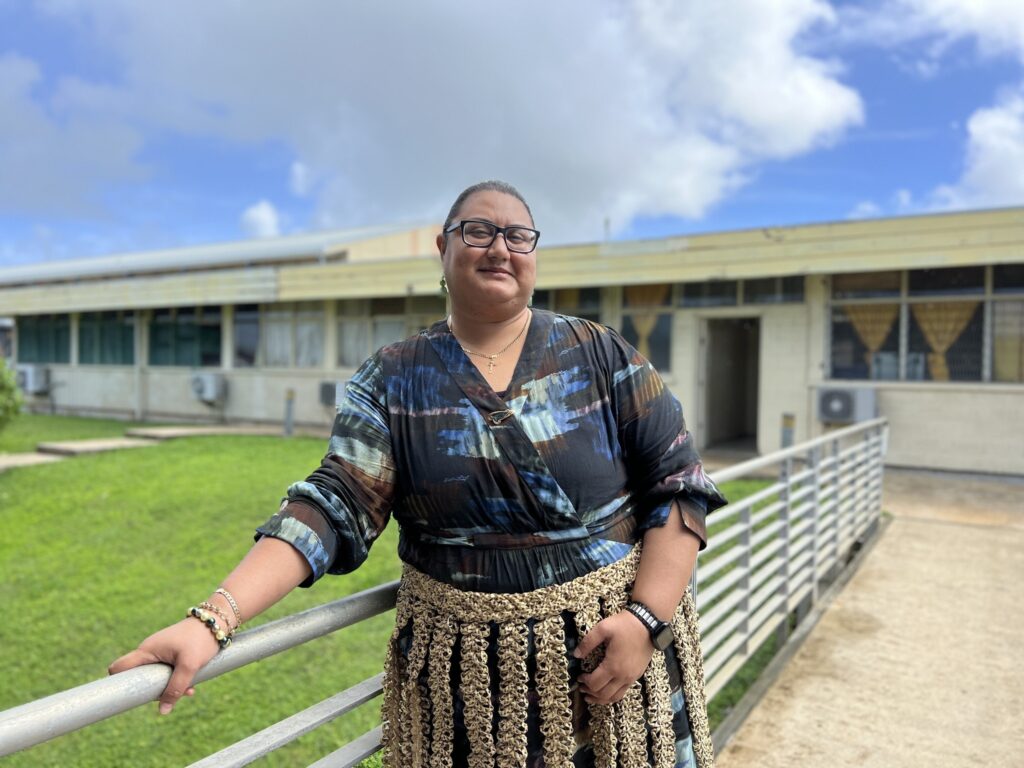“I’m turning 40 this year in July and I’ve been a nurse for 21 years.
I always loved the Science and Maths subjects back in high school. I didn’t see myself as a nurse or doctor but I did know at the time that I’ll end up somewhere in a hospital.
In 2000 when I was in USP, I had a grandparent—my maternal grandmother’s sister—who worked in Niua and she got burned. When she was brought from Niua, there was no one at the time to stay with her at the hospital’s surgical ward. All the families were busy.
My Mum had to pull me out of school to care for my granny for a couple of months. I was there as a first observer of the nurses doing their jobs and being there 24/7. After 2 weeks at the hospital, I got to know the nurses and their routines.
Before they came in the morning to change my granny, I had already helped her to wash and get ready. I think that’s when I developed my love for nursing. It fit smoothly with my nature of helping and giving.
I started as a student, became a [Registered Nurse] then got transferred to the nursing school when I got my degree. I had the post of a graduate sister then a senior lecturer which is equivalent to the Nurse in Charge.
From there, I jumped straight to Chief Nursing Officer.
I’m the youngest CNO today and probably in the Pacific. The CNO gets to oversee all nurses, does a lot of policy development, review manual procedures and the development of all staff, and take on most management roles.
I’d say Australia has given me this post and all the opportunities in the world. I travelled and progressed in my career journey because of what Australia has given me.
I should be called ‘Scholarship’ because aside from high school, all my educational journeys were scholarships from Australia starting at USP up to now. That’s 13 years of scholarship studies.
I have received a BA in Nursing, MA in Nursing Practice and another MA in Policy and Curriculum Evaluation Development. In another 4 years, maybe I’ll try again for a PhD. The drive is the fact that I need to be taught and be knowledgeable so I can bring that knowledge and do a better job at work.
I got to learn a lot from Australia. The hard part for me was contextualising that to Tonga. I had to change all their luxury and contextualise it to no resources here in Tonga.
When we do practicals, I’d say, ‘I can’t be practicing on luxury things here because we don’t have that so I’m going to take this off, take this and take this. I’ll just practice here so you can teach me how to practice on scarce resources.’
In the end, almost everything was taken away. ‘Oh, you don’t have that?’ ‘Yes, so you have to teach me how to utilise the only two things I have in front of me.’
We did a lot of projects on curriculum development. I always had to think of the remote islands in Tonga with no internet and where the lights are going to be off at any minute.
There’s no one there and I can’t take a whole crew to do the training. We can only afford to take one person. You wish all the nurses can attend the trainings but they can’t due to the scattered islands.
To develop a curriculum that fits a remote island context is extremely hard. I even had to put up pictures of nurses riding the tractors in the islands or video clips of them counting the waves to go to Mo’Unga’One.
One time they missed the count and ended up in the ocean. These are things I had to show at school so they can help me develop something that will fit our context.
At the MA level, you don’t do practicals anymore but I asked the scholarship and the school if they can allow me to go. A lot of extra money was spent so I could go to the largest hospital in Australia for two weeks.
I went inside, saw all the hospital’s stuff and said to myself, ‘Tonga won’t make it here in the next 50 years.’ But maybe we can get a little bit or we can change a little bit of things to be close to that level.
In the hospital, I wasn’t looking at the resources. I was looking at their procedures, manuals, and their nursing practices, to see how we can lift ours here in Tonga to be somewhere close to that.
For now, I’ll keep working for Tonga, applying the knowledge afforded to me through the scholarship I received from Australia. I think the main purpose of the [Australia Awards] scholarship was to provide people opportunities for further studies so they can return and develop their home country.
Somewhere in that 100 percent, I’d like to think that 0.001 is a contribution by Mele Inu for Tonga.”
Source: Australian High Commission – Stories of Partnership with Tonga




